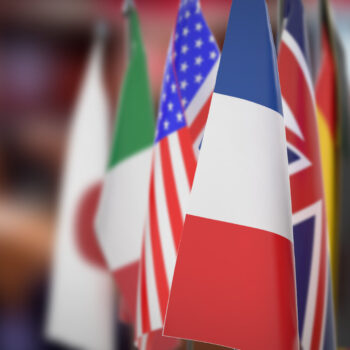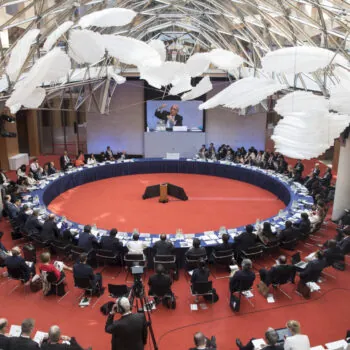Hot on the heels of the most recent Trump-quake following the G7, the upcoming European climate diplomacy week is filled with opportunities for ministers (and even a head of state or two) to get down to the real business of international cooperation. The EU and its member states are in prime position to up the ante on climate diplomacy as they host the second Ministerial on Climate action (MoCA) and the annual Petersberg Dialogue.
Building alliances on the Paris rules
Europe is celebrated as a champion of the rules-based international order the world over. And luckily for Europe, 2018 is their time to shine. In 2018, countries will agree the rules which help implement the Paris Agreement. While not the most glamourous of topics, rules are fundamental to enabling greater cooperation amongst governments – giving them the certainty that everyone is doing what they say they’re going to do. They also offer a clear signal to investors, businesses and communities that their countries are committed to low carbon resilient transition. And so, they help increase confidence in the kind of investment and planning that puts low carbon transition at the centre.
Ministers attending next week’s Petersberg Dialogue will be discussing the path forward for finalising these rules. In the spirit of the Paris Agreement the rules will be common, but flexibility will help enable participation and improvement in countries capacity to deliver transparency, implementation and ambition over time. With many new ministers amongst the participants at both the Petersberg Dialogue and the Ministerial on Climate Action, European minsters, but especially hosts Germany and Poland will need to get to know their colleagues better and start outlining their shared vision for the COP24 outcome where the rules will be finalised.
Real Finance for real action
Many developing country nationally determined targets remain conditional on support, making finance an important keystone to enable climate action. This is not just about finance as a means to lubricate the wheels within the UN climate negotiation halls, but instead about real money for real action.
While G20 countries currently still account for 80% of global greenhouse gas emissions, poorer developing economies are already making economic and infrastructure decisions that will lock-in their development pathways for decades to come. These decisions will severely impact our ability to collectively limit warming to well below 2, let alone the 1.5, degrees needed to prevent the most severe impacts of climate change. It is crucial to open the discussion around the value and purpose of finance and the reporting necessary to inform critical development decisions both at MoCA and Petersberg.
Alongside the opportunity to frankly discuss finance in a more informal setting, European ministers can use this opportunity to signal that they are preparing to secure necessary financial support. This should include 1) concrete efforts towards mobilizing the annual $100 billion in climate finance promised up to 2020, and 2) a willingness to bridge the gap of an absent US by doubling financial contributions in the upcoming Green Climate Fund replenishment.
Win-win opportunities: the case for real economy diplomacy
Real economy diplomacy is quickly becoming standard practice in European climate diplomacy. And opportunities for further progress during European climate diplomacy week should not be missed, low carbon resilience cooperation should be the hot topic issue on the side-lines of the two major ministerials and what better way to while away the time on the train from Berlin to Brussels. Here European ministers can lay the foundations for cooperation on anything from sustainable finance reforms to EV infrastructure. And with the EU-China summit coming up in mid-July, there’s an opportunity to lay ground work for cooperation on green infrastructure investments and low carbon resilience under the Belt and Road Initiative.
Lightening the load: social transition
Even in the best-case scenarios we will soon be facing a number of simultaneous transitions. A combination of automation, deep decarbonisation and increasing climate impacts will challenge all our societies and communities. From coal mining villages in Poland to coastal communities on Vanuatu. Handling this broader social transition will be a heavy load, one which only cooperation can lighten. With a growing interest in a Just Transition outcome at COP24, the Petersberg dialogue– with its broad mix of countries – can also be a space where countries (and especially Germany!) start broadening the conversation around what cooperation on a global Just Transition could look like.
The opportunity is clearly there, now it is time for European ministers to seize it.


